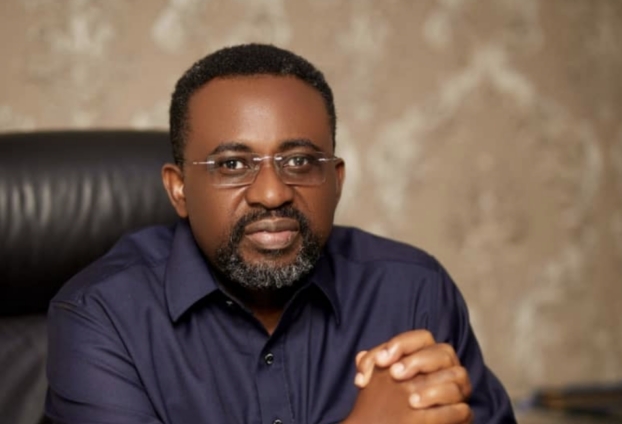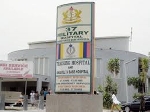ET BOG FX: The signs of a stable cedi/dollar exchange rate in 2025
 Dr Johnson Asiamah
Dr Johnson Asiamah
Considering that 2025 is another year during which Ghana will not have access to the international capital market it is only to be expected that both participants in the local economy and international direct investors would be nervous about the direction and quantum of the change in the exchange rate between the Ghanaian cedi and the United States dollar over the coming months.
Indeed, it would appear they have good reason to worry.
The relative exchange stability enjoyed by the cedi during the latter years of the previous decade and the start of this one were primarily achieved by heavy borrowing of US dollars in the form of annual Eurobond issues of US$3 billion, most of which was used to prop up the supply of foreign exchange on the local currency market.
However when the three international sovereign credit ratings agencies – Fitch, Moodys and Standard & Poors - all decided that Ghana’s public forex debt was unsustainable towards the end of 2022 and Bloomberg began justifying the resultant price discounts and consequent sharp rise in yields on Ghana-issued Eurobonds to investors still holding on to them, the real cost of this cavalier strategy became clear.
Since then, the value of the cedi against the US dollar has fallen to barely a third of what it used to be, with a dollar trading for GHc5.56 by early April 2025 on the interbank forex market – and a significantly higher GHc6.10 on the retail market - compared with a little over GHc6 to a dollar as at the third quarter of 2022. Instructively, the cedi’s free fall continued through to 2024, with the currency depreciating by 28% against the American greenback last year alone.
But Ghana’s pivotal change of government from the erstwhile profligate Nana Akufo-Addo administration to the much more fiscally responsible incumbent President John Dramani Mahama administration, coupled with favourable developments in the country’s key international commodity export markets, have changed the exchange rate trajectory sharply.
While the cedi still depreciated sharply during the first quarter of 2025, while the Mahama administration was settling in – by 5.36% against the dollar - this was followed by marginal appreciation at the start of April which narrowed the year to date fall to less than 3%, and relative exchange rate stability since then.
Speaking after the 123rd Monetary Policy Meeting in late March, the Governor of the Bank of Ghana, Dr. Johnson Asiama, announced a set of measures aimed at stabilizing the Ghanaian cedi, as the currency faces continued pressure against major foreign currencies.
These include tightening monetary policy to control inflation, enhancing foreign exchange reserves and structural reforms to address exchange rate misalignment.
Dr. Asiama stresses the need for monetary and fiscal coordination, inflation control, and structural reforms to restore confidence in the cedi.
“On top of the projected steady growth for 2025, the international markets have priced in a much stronger US economy stemming from the policies to be implemented by the new US administration. This has already instigated a stronger US dollar with implications for emerging markets and developing economies, including Ghana” he warns.
“Complementary fiscal and monetary policies will therefore have to be carefully set to prevent spillovers to the Ghanaian economy.
“External sector conditions remain positive, with sustained and stronger-than-programmed rebuilding of reserve buffers contributing to the stability of the domestic currency.
The performance of the external sector (in 2024) was mainly driven by strong growth in gold exports, which also largely contributed on growth.
In the outlook, the external sector is expected to remain strong as commodity prices remain favourable amid improvements in production.
Overall, while the external sector conditions are expected to provide an anchor to exchange rate stability, key risks in the outlook, including challenges in the energy sector, will have to be closely monitored.”
Importantly, he is backing his words with concrete action.
The Bank of Ghana supported the foreign exchange market with US$264.4 million in March 2025 alone to preserve the stability of the cedi.
Indeed, such interventions reflect the growing size of Ghana’s gross international reserves and the consequent ability to both provide forex liquidity in the local market and directly intervene in it when deemed necessary.
Easily the biggest contributor to this newfound strength is gold, which is continuously setting new international market price records by the week. The price of a fine ounce of gold is currently around US$3,227 and is rising so fast that even Goldman Sach’s earlier forecast of a closing price for the year of over US$3,500 now looks much too conservative.
Apart from enjoying the direct benefits of the ongoing unprecedented price surge, it is also encouraging investment in increased production in Ghana and, more recently, concerted efforts by the new government to formalize small scale mining (most of which has been illegal and environmentally unfriendly) and take control of the sale of the gold it produces, much of which has been smuggled out in the past.
Databank Research expects the new government to prioritize domestic mining, boosting gold production to bolster reserves.
According to its Ghana Outlook report for 2025 “In the aftermath of the elections, the new government may focus on enhancing domestic mining companies to boost gold production.
This comes at a time when gold reserves have been steadily increasing in recent years, standing at 37.52 metric tonnes as of the second quarter of 2024, with projections indicating a rise above the levels recorded in 2023. We believe the move will further augment gold reserves and offer a potential cushion for the Cedi.”
Oil prices are falling too, but this is a double-edged sword, favouring consumers who might be able to enjoy price cuts at the pump on imported petroleum products, and lower diesel import costs for powering thermal electricity stations, but putting the government’s forex revenue target from crude oil exports in jeopardy.
Cocoa prices are still hovering not too far behind the over US$10,000 per ton they peaked at last year and Ghana’s production looks set to exceed its 617,000 target for the current crop season, but about a third of this is going into fulfilling supply contracts that the country defaulted on during the previous disastrous crop season.
Commodity prices on international markets – and to a lesser extent, production – are outside the complete purview of government itself, but the Mahama administration is proving prudent in the fiscal management and economic policy measures that it can control and these are already yielding palpable results which are not going unnoticed both at home and abroad.
Databank Research predicts that political stability after the 2024 elections is expected to attract foreign direct investment (FDI) and portfolio inflows, easing speculative pressures on the cedi.
Disciplined fiscal policies are projected to reinforce this recovery.
“We expect a successful 2024 election to bring renewed confidence in the Ghanaian economy which should lead to increased foreign direct investment and portfolio inflows.
This development would bolster investment sentiments around the cedi and reduce speculative attacks on the currency,” Databank Research notes.
Indeed, following Ghana’s Eurobond debt restructuring in 2024, Moody’s and Fitch upgraded the country’s ratings, with Moody’s moving its issuer rating from “Caa3” to “Caa2” and assigning a positive outlook.
Databank also predicts further upgrades as economic indicators improve, strengthening the cedi.
“Following the successful Eurobond debt rework in the 3rd quarter of 2024, global rating agencies Moody’s and Fitch upgraded Ghana’s long-term local and foreign currency issuer ratings.
Moody’s upgraded the issuer rating from “Caa3” to “Caa2” and “Ca”, respectively, and assigned a positive outlook,” Databank notes.
“Fitch Solutions followed with the upgrades, assigning a “CCC+” to Ghana’s new USD bonds from the initial “CCC”. We expect a further upgrade as the rating agencies cited that continuous improvement in economic indicators would attract higher upgrades. We expect these developments to improve sentiments around the Cedi and allow for its stability,” the research firm predicts.
Inevitably, quantitative forecasts for the cedi’s exchange rate performance against the US dollar vary from one forecasting firm to another, depending on the specific nature of their econometric modelling and trend analyses. But constructively, none of the forecasts predict major depreciation during 2025.
Coin Codex, an American economic and financial forecaster, expects that in 2025, the exchange rate between the US dollar and the Ghanaian Cedi is anticipated to range between GHc 15.06 and GHc 16.91, leading to an average annualized price of GHc 15.90.
World renown accounting and management consulting firm Deloitte predicts that in 2025, the improved investor confidence arising from the relatively peaceful election, the conclusion of the government’s debt restructuring negotiations, periodic International Monetary Fund (IMF) disbursements and higher gold export receipts will boost the international reserves level of the country and support the cedi’s value.
Gov Capital Forecasts expects the US dollar to exchange at 15.70 by the end of the third quarter of this year.
What all these forecasts have in common though is that the exchange rate will remain more or less stable through 2025 which means currency traders planning to take positions against the cedi – a major cause of cedi depreciation in the past – would be better off investing in government or Bank of Ghana bills which offer better returns on their investment.
Trending News

Mahama announces Cashew Development Board to revamp industry
08:55
Ghana's embassy in Washington reopens today after closure over corruption concerns
08:57
Vice President urges political appointees to press forward with renewed determination
12:59
37 Military Hospital to temporarily close emergency unit for fumigation
08:36
Anne Sansa Daly was not sworn- in as NHIA board member- Ministry of Health clarifies
08:33
President Mahama outlines digital road toll collection system at 2025 Ghana CEOs’ Summit
14:45
Kwahu South Education Director calls for incentives to address rural teacher shortage
08:26
Ministry of Health urges GRNMA to rescind strike decision
08:15
Attorney-General dismisses suspended CJ’s objections on in-camera probe
12:08
Rashid Pelpuo leads Ghana's delegation to co-chair ILO conference in Geneva
08:05




